外研版初一英语时态专题复习汇编
- 格式:doc
- 大小:61.00 KB
- 文档页数:9
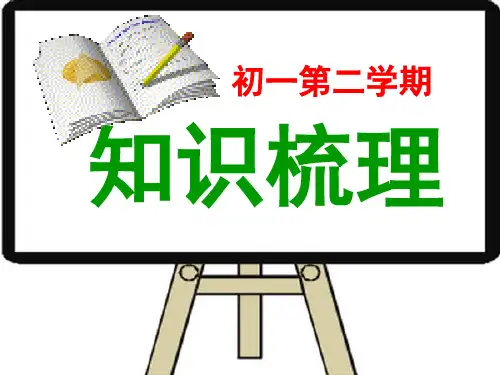
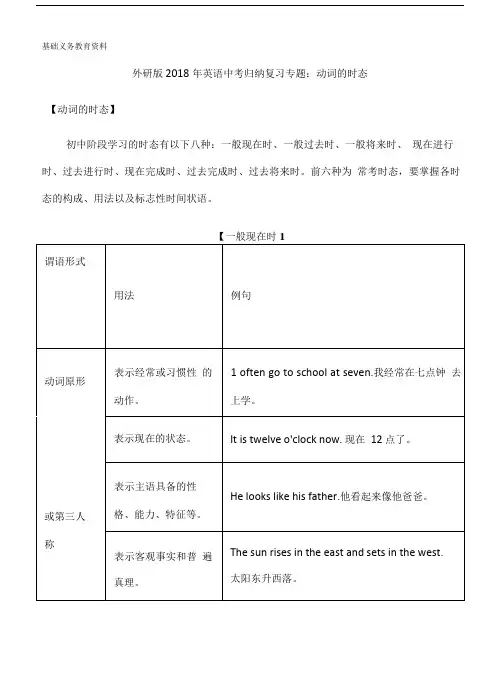
基础义务教育资料外研版2018年英语中考归纳复习专题:动词的时态【动词的时态】初中阶段学习的时态有以下八种:一般现在时、一般过去时、一般将来时、现在进行时、过去进行时、现在完成时、过去完成时、过去将来时。
前六种为常考时态,要掌握各时态的构成、用法以及标志性时间状语。
【一般现在时1单数形式(do/does )时间标志在时间、条件状语从句中,代替一般将来时go,comejeave,arrive等动词常用一般现在时表示在时间上已确定或安排好的事情。
If it doesn't rain tomorrowj will leave.如果明天不下雨我将离开。
The train to Beijing leaves at 5:30.开往北京的火车5:30离开。
always,usually,often,sometimes,every day/year/week,on Sunday,twic e a week...【考点训练1】1.M y father is a teacher and he(teach) in a middle school.2. Yesterday the teacher told us the earth(go) around the sun.3.一When shall we begin our meeting?——We' II begin it when Helen.( )esB.cameC.will comee作或存在的状态。
我在街上遇见他了。
过去式(di 表示过去习惯性、经常性的动作、行为,常和often,always等频度副词连用。
He often went to school by bus last term.上学期他经常乘公共汽车去上学。
d) 4.—How do you usually go to school?一I usually to school on foot. ( )A.goB.wentC.was goingD.will go答案:teaches goes A A【一般过去时】谓语用法例句形式表示过去某个时间里发生的动I met him in the street yesterday.昨天时间yesterday,the day before yesterday,last night/week/year,a moment ago,just标志now,therein 2000,when he was very young...要点提醒:“used to+动词原形”表示过去的习惯或状态。
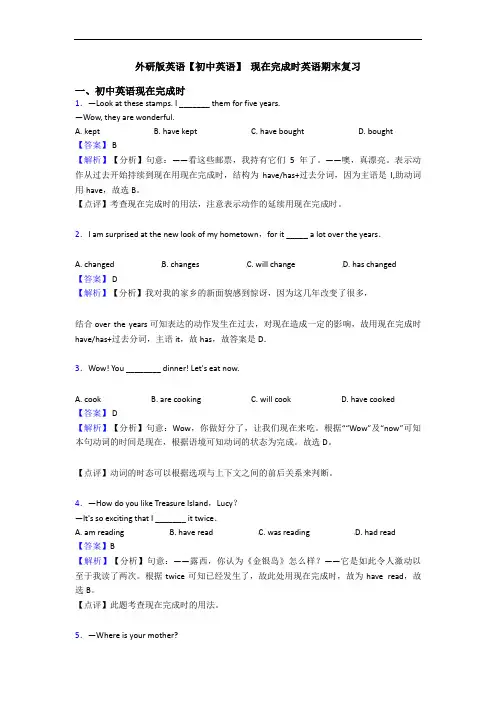
外研版英语【初中英语】现在完成时英语期末复习一、初中英语现在完成时1.—Look at these stamps. I _______ them for five years.—Wow, they are wonderful.A. keptB. have keptC. have boughtD. bought【答案】 B【解析】【分析】句意:——看这些邮票,我持有它们5年了。
——噢,真漂亮。
表示动作从过去开始持续到现在用现在完成时,结构为have/has+过去分词,因为主语是I,助动词用have,故选B。
【点评】考查现在完成时的用法,注意表示动作的延续用现在完成时。
2.I am surprised at the new look of my hometown,for it _____ a lot over the years.A. changedB. changesC. will changeD. has changed【答案】 D【解析】【分析】我对我的家乡的新面貌感到惊讶,因为这几年改变了很多,结合over the years可知表达的动作发生在过去,对现在造成一定的影响,故用现在完成时have/has+过去分词,主语it,故has,故答案是D.3.Wow! You ________ dinner! Let's eat now.A. cookB. are cookingC. will cookD. have cooked【答案】 D【解析】【分析】句意:Wow,你做好分了,让我们现在来吃。
根据““Wow”及“now”可知本句动词的时间是现在,根据语境可知动词的状态为完成。
故选D。
【点评】动词的时态可以根据选项与上下文之间的前后关系来判断。
4.—How do you like Treasure Island,Lucy?—It's so exciting that I _______ it twice.A. am readingB. have readC. was readingD. had read【答案】B【解析】【分析】句意:——露西,你认为《金银岛》怎么样?——它是如此令人激动以至于我读了两次。
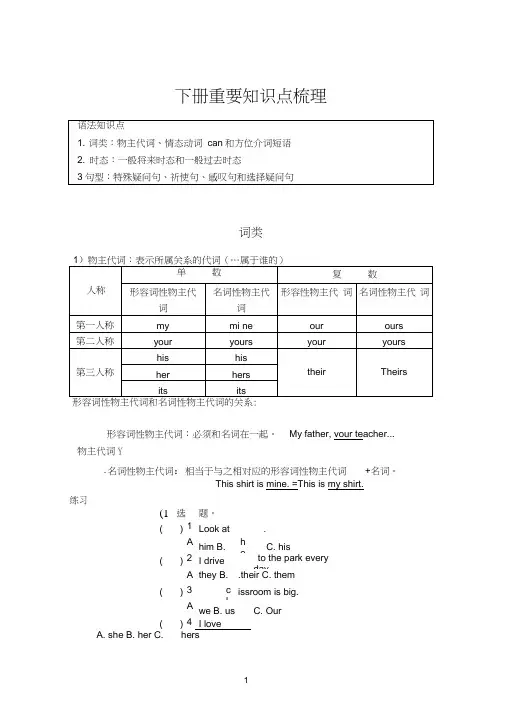
下册重要知识点梳理词类形容词性物主代词和名词性物主代词的关系:形容词性物主代词:必须和名词在一起。
My father, vour teacher... 物主代词Y-名词性物主代词:相当于与之相对应的形容词性物主代词+名词。
This shirt is mine. =This is my shirt.练习(1 )选择题。
( ) 1. Look at .A . him B.heC. his( ) 2. I drive to the park everydayA . they B. .their C. them( ) 3. clissroom is big.A . we B. us C. Our( ) 4. I loveA. sheB. herC. hers( )5. Do you know ?A. IB. myC. me( )6. I am son.A. theyB. theirC. them( )7. This is not desk.. My desk is over there.A. IB. myC. me( ) 8. —Can you spell n ame, Harry? —Sorry.A. youB.your <C. yours( )9. Tom and Jack are brothers. This is room.A. theyB. themC. their( )10. We are in the same class. classroom is very niceA. ourB. myC. ours( ) 11. Mrs. Green is my teacher. I ' m stude nt.A. heB. hisC. him( ) 12. That ' s a cat. n ame is Mimi.A. ItB. It 'sC. Its(2 ) 用括号里的代词的适当形式填空1, Mr Yang is ______ (we) teacher. _______ (him) is from Beiji ng. ______ (his) teaches _____ (our) En glish.2, Look,there is a cat. ______ (they) is Lily's. __ (it) n ame is Mimi.3, Let ____ (I) tell _____ (she) about _____ (he) life at school.4, This is _____ (they) room.Where is _____ (our)?5, Don't use the eraser. ____ is ______ (me).6, The lady un der the tree is _____ (me) aunt. ____ (her) ofte n sings with____ (she) husba nd2) 情态动词can1. 含义:表达人或物的能力,能或会…2. 特点:情态动词can没有人称和数的变化,之后要加动词原形。
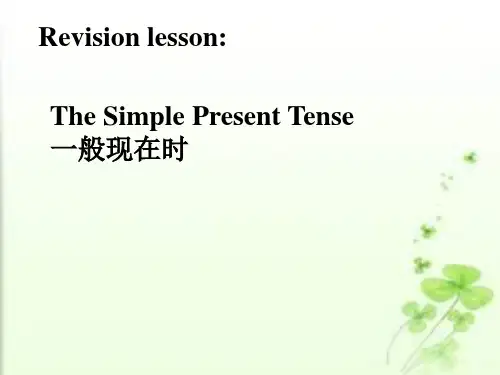
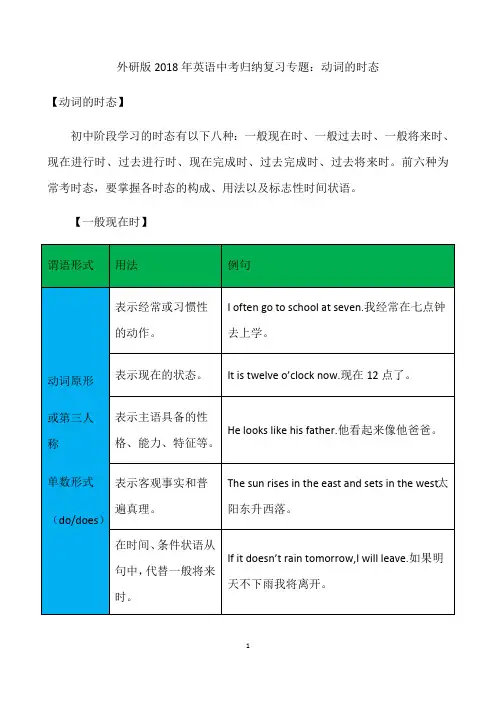
外研版2018年英语中考归纳复习专题:动词的时态【动词的时态】初中阶段学习的时态有以下八种:一般现在时、一般过去时、一般将来时、现在进行时、过去进行时、现在完成时、过去完成时、过去将来时。
前六种为常考时态,要掌握各时态的构成、用法以及标志性时间状语。
【一般现在时】【考点训练1】1.My father is a teacher and he _________ (teach) in a middle school.2.Yesterday the teacher told us the earth _______ (go) around the sun.3.—When shall we begin our meeting?—We’ll begin it when Helen ___ . ()esB.cameC.will comee4.—How do you usually go to school?—I usually ___ to school on foot. ()A.goB.wentC.was goingD.will go答案:teaches goes A A【一般过去时】要点提醒:“used to+动词原形”表示过去的习惯或状态。
如:Mum used to tell us stories.妈妈过去常给我们讲故事。
【考点训练2】1.Mike ________ (not go) to bed until 12 o’clock last night.2.He asked if I _____ (be) a student.3.Will you please say it again?I ___ quite ___ you.()A.don’t;hearB.didn’t;hearC.don’t;heardD.didn’t;heard4.He _____ go out with his parents,but now he ____ staying at home alone. ()ed to;is used toB.is used to;used toe to;is used toed to;used to答案:didn’t go was B A【一般将来时】要点提醒:be going to与will的区别1.be going to 指已计划好的事或思考过的意图、打算,will表示未事先思考或未计划而临时做出的决定。
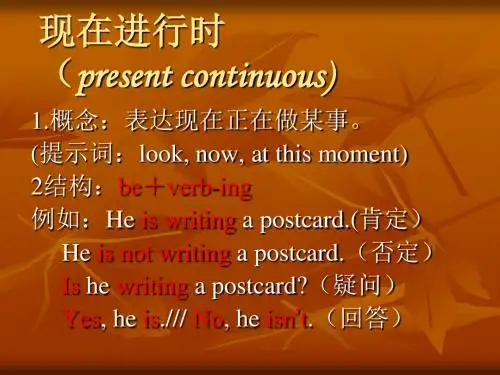
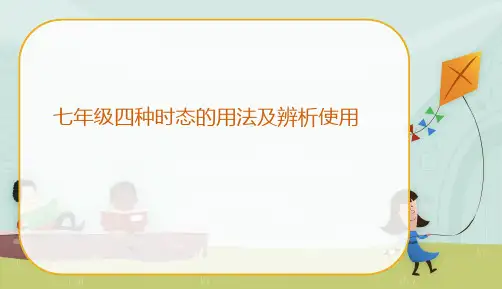
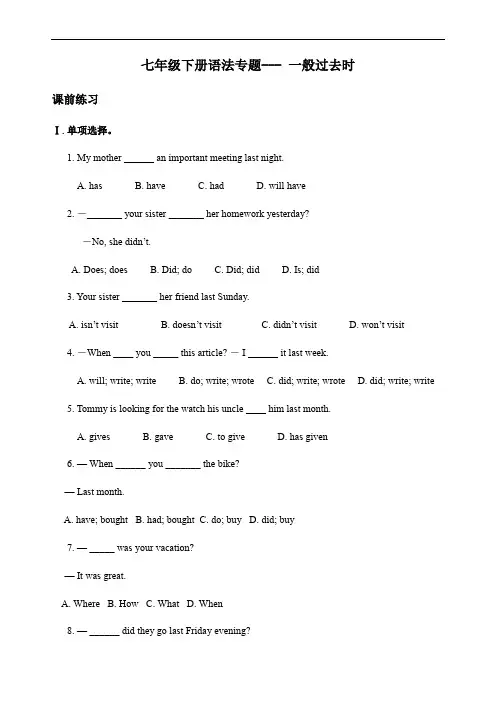
七年级下册语法专题--- 一般过去时课前练习Ⅰ. 单项选择。
1. My mother ______ an important meeting last night.A. hasB. haveC. hadD. will have2. -_______ your sister _______ her homework yesterday?-No, she didn’t.A. Does; doesB. Did; doC. Did; didD. Is; did3. Your sister _______ her friend last Sunday.A. isn’t visitB. doesn’t visitC. didn’t visitD. won’t visit4. -When ____ you _____ this article? - I ______ it last week.A. will; write; writeB. do; write; wroteC. did; write; wroteD. did; write; write5. Tommy is looking for the watch his uncle ____ him last month.A. givesB. gaveC. to giveD. has given6. — When ______ you _______ the bike?— Last month.A. have; boughtB. had; boughtC. do; buyD. did; buy7. — _____ was your vacation?— It was great.A. WhereB. HowC. WhatD. When8. — ______ did they go last Friday evening?— In the park.A. WhichB. WhenC. WhatD. Where9. — When ______ you come here?— Two years ago. I have been here for two years.A. doB. willC. didD. have10. — Hi, Kate. You look tired. What’s the matter?— I ______ well last night.A. didn’t sleepB. don’t sleepC. haven’t sleptD. won’t sleep11. I ______ late for the class because I ______ill yesterday.A. were; wereB. am; wereC. am; amD. was; was12. There ______ a film in the cinema last night.A. isB. wasC. wereD. are13. It ______ cold yesterday, but it ______ warm today.A. is; isB. was; wasC. is; wasD. was; is14. There ______ a ball and two books on the table just now.A. isB. wasC. wereD. are15. Last Sunday my aunt ______ at home with me. We were watching TV all day.A. wasB. wereC. isD. are答案:Ⅰ. 单项选择。
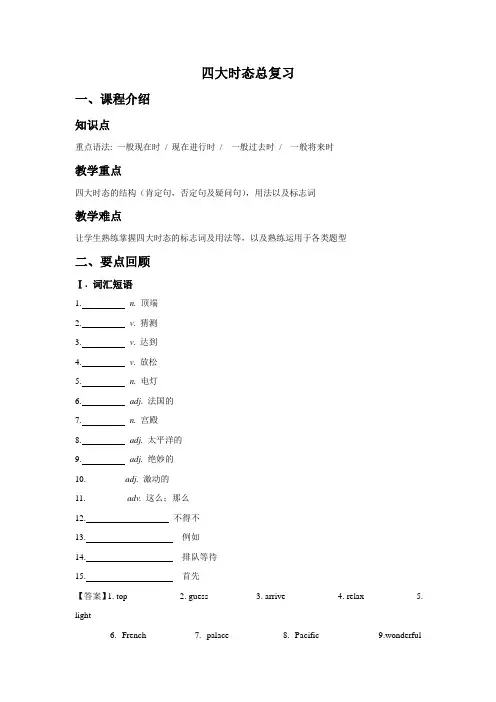
四大时态总复习一、课程介绍知识点重点语法: 一般现在时/ 现在进行时/ 一般过去时/ 一般将来时教学重点四大时态的结构(肯定句,否定句及疑问句),用法以及标志词教学难点让学生熟练掌握四大时态的标志词及用法等,以及熟练运用于各类题型二、要点回顾Ⅰ. 词汇短语1. n. 顶端2. v. 猜测3. v. 达到4. v. 放松5. n.电灯6. adj. 法国的7. n. 宫殿8. adj. 太平洋的9. adj. 绝妙的10._________adj.激动的11._________ adv. 这么;那么12. 不得不13. 例如14. 排队等待15. 首先【答案】1. top 2. guess 3. arrive 4. relax 5. light6. French7. palace8. Pacific9.wonderful10.excited11. so 12. have to 13. such as14. wait in line 15. first of allⅡ.活用句型翻译下列句子1. 晚上我们在一家法国餐厅吃饭。
_________________________________________________.2.它有着许多名画,例如蒙娜丽莎。
_________________________________________________.3.首先我们不得不排队等待一小时,然后我们去到了顶端。
___________________________________________________?【答案】1.In the evening we had dinner in a French restaurant.2.It has many world-famous works of art, such as Mona Lisa.3.First of all, we had to wait in line for an hour, and then we went to the top.三、知识精要【语法点一】一般现在时用法:1)表示经常性、习惯性的动作或存在的状态。

外研版初一英语下学期期末专题复习一、一般现在时:(1、现在的状态。
2、经常或习惯性动作。
3、主语所具备的性格和能力。
4、真理。
)1、标志:often(经常),usually(通常),sometimes(有时),always(总是),never(从不),on Sundays(在星期天), every day/month/year(每一天/月/年)2、结构:(1)主语+连系动词be(am/is/are)+名词/形容词/数词/介词短语/副词等做表语表状态(包括There be +n.)(2)主语(非第三人称单数)+行为动词原形+其他(用助动词do 帮助构成否定句、一般疑问句和特殊疑问)(3)主语(第三人称单数)+行为动词的第三人称单数+其他(用助动词does 帮助构成否定句、一般疑问句和特殊疑问句)行为动词第三人称单数加-s的形式1. - s2. 辅音+y: study-studies3. 以s,x,ch,sh结尾watch-watches teach-teaches 4.特殊have-has do-does go-goes练习1:用is、am或are填空1.China _________ a big country.2.We __________ in the classroom.3.Her mother _________ an English teacher.4.He ________ a worker. He works very hard.5.Where _________ you from?6.It _________ a beautiful cat.7.They _________ good friends.8.I ________ not from Jiangsu.I come from Shanghai.练习2. 用所给动词的正确形式填空。
1. Jim usually ________ ( have ) lunch at home.2. Li Guanhua _______ ( be ) twenty years old.3. How many students ________ ( be ) there in your class?4. ---______ she _______ ( study ) hard?---Yes, she _________.5. Lucy and lily _____________ ( not speak ) Chinese.6. My father ______________ ( not do ) morning exercises every day.7. She always ___________ ( wash ) her clothes on Sundays.8. ______ your brother ________ ( like ) playing football? No, he ____________.二.现在进行时:表示说话瞬间或现阶段正在进行的动作。
1、标志: now(现在)listen(看)look(听)2、结构:主语+助动词be(am/is/are)+行为动词的现在分词(doing)现在分词的构成:1.-ing: eat-eating (直接加)2.辅音字母+e: take-taking (去e加)3. sit, put, begin, run, swim, stop, get, shop,(双写加)练习:1. Jim __________________(take) photos in the park now.2.Jim_________(not take) in the park now.3. _______________Jim____________(take) photos in the park now?Yes, he _____. No, he _______.4. Where _________Jim ____________ photos now?In the park.三.一般过去时:表示过去某个时间里发生的动作或状态;过去习惯性、经常性的动作、行为;过去主语所具备的能力和性格。
标志:一段时间+ago,yesterday(句子开头或结尾),the day before yesterday, last week, last(year,night,mon th…),具体时间(如Jan.fourth),just now, one day, long ago, once upon a time (很久以前)动词变化规则:规则变化:1.直接加ed:work—— worked look——looked play——played,2.以e结尾的单词,直接加d:live ——lived hope——hoped use——used,3. 以辅音字母+y结尾的,变y为i加ed:study——studied carry——carried worry——worried,4.以元音字母+y结尾的,直接加ed:enjoy ——enjoyed play——played5.以重读闭音节结尾的,双写最后的辅音字母+ed:stop—— stopped plan——planned不规则变化:见教材120页结构:肯定:主语+动词过去式+其他否定:①was/were+not;②在行为动词前加didn't,同时还原行为动词一般疑问句:①Did+主语+do+其他?②Was\Were+主语+ 其他?改写句子:1、Lucy did her homework at home.(改否定句)Lucy _______ _______ her homework at home.2、He found some meat in the fridge.(变一般疑问句)______ he _____ ______ meat in the fridge?3、She stayed there for a week.(对划线部分提问)______ ______ _____ she _____ there?4、There was some orange in the cup.(变一般疑问句)_____ there _____ orange in the cup?四.一般将来时:表示将来的动作、状态等。
标志:tomorrow, next week/month /year, in a few days等。
结构:(will+动词原形be going to+动词原形)第一类肯定句主语+shall/will+动词原形+其它成分.否定句主语+shall/ will +not +动词原形+其它成分.一般疑问句:Shall /will +主语+动词原形+其它成分?特殊疑问句疑问词+shall/will+主语+动词原形+其它成分?如:What will they do next Saturday?注:shall用于第一人称。
will用于各种人称。
口语中常用will代替shall。
shall not=shan’t will not=won’t第二类is/am/are going to + V(原形)表示将来的构成形式:肯定句主语+ is/am/are going to +动词原形+其它成分.否定句主语+is/am/are +not+ going to +动词原形+其它成分一般疑问句:is/am/are +主语+going to +动词原形+其它成分?特殊疑问句疑问词+is/am/are +主语+going to +动词原形+(其它成分)? 注意:Be(am / is /are)随着主语的变化而变化。
Be (am / is /are) going to + V(原形)表示将来的用法。
用动词一般将来时态填空:1. We _____ _____(hike) next Sunday.2. I ____ ____(do) it tomorrow.3. My father ____ ______(come) back next week.4. Why _____ you______(not climb) the hill with us next Saturday?5. ____she ____(see) her aunt soon?6. Where ____they ______(move) next month?7. ____ you_____(help) me with my English tonight.五、情态动词:1、任何主语+can/may/must+动词原形2、主语+ can’t/may not/ mustn’t+动词原形3、 Can/May/Must + 主语+ 动词原形?4、疑问词+can/may/must+主语+动词原形?六、非谓语动词(是固定搭配)1. like+ to do不定式/doing动名词2.want to do sth.3. love to do4. would like to do sth.5. enjoy doing sth.6. thanks for doing7. stop doing sth8. let sb. do sth.She wants _____(have) a party. Does he like _______(swim)?Thanks for _______(enjoy) CCTV show. She never stops ____(talk).七.祈使句:Go straight and turn left/ right.Go through Fifth Avenue.Take a taxi(Take a bus,Take a walk……)八.综合练习11.Mr Green _____(be) a worker. Now he ____(work) in the field.2.Listen! Who_______(sing)?3.What time ____ your brother usually _____(do) his homework?4.You can_______(come) here by bus.5. Who ____(have) a ruler?6.Are they_____(clean) the room?7.-____ you____(eat) dinner? – Yes, we are.8.Jack ____(have) a soccer ball, but he ____(not have) a basketball.9._______Jim _______(like)______(run)?10.They _____(be) from Canada. They______(not speak) Chinese.11. He wants _________________(be) tall.练习21) I__________(be)a student. My sister______ (be)a student, too.2) There______(be)a pen and two pencils in the pencil-box.3) Listen! She _________ (sing) a song.4) We always ________ (clean)our classroom after school.5) There _______ many clouds in the sky. It ___________________rain soon.6) Sometimes we______ (play) football after school. We really_____ (enjoy)ourselves7) They _________ (go) to Guangzhou for a meeting.8) We know there _______(be) 24 hours in a day.9) All the students_____ ______ (have) computer lessons now?10) ______ you _______ ( go ) to school by bus next Friday?11) What ______ your mother_______ (do)?12) Don't be late, Joan. The train__________ (start)at 10a.m.13) My parents usually______ (watch) TV on Saturday evening.14) He often ________ (listen) to the radio at home.15) We_______ ________(not have) much work to do today.16) When_____ your music lesson______ (begin)?17) Why ______ you ______ (not go ) by train?18) ______ ( be ) you _________ have a music class tomorrow?练习3.1.我们正在吃晚餐。